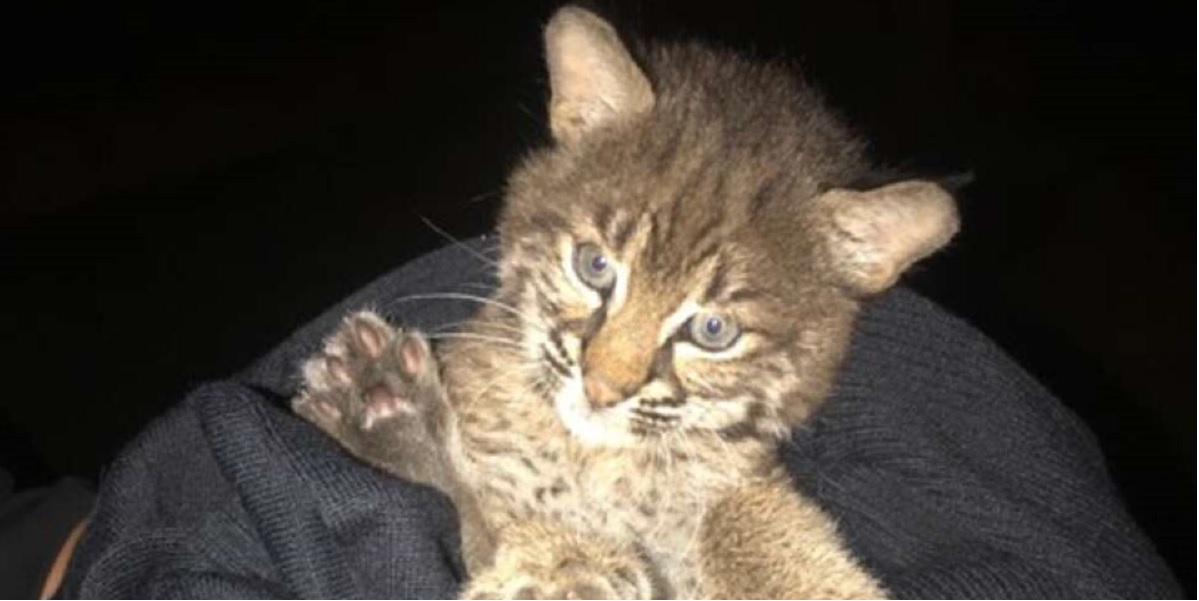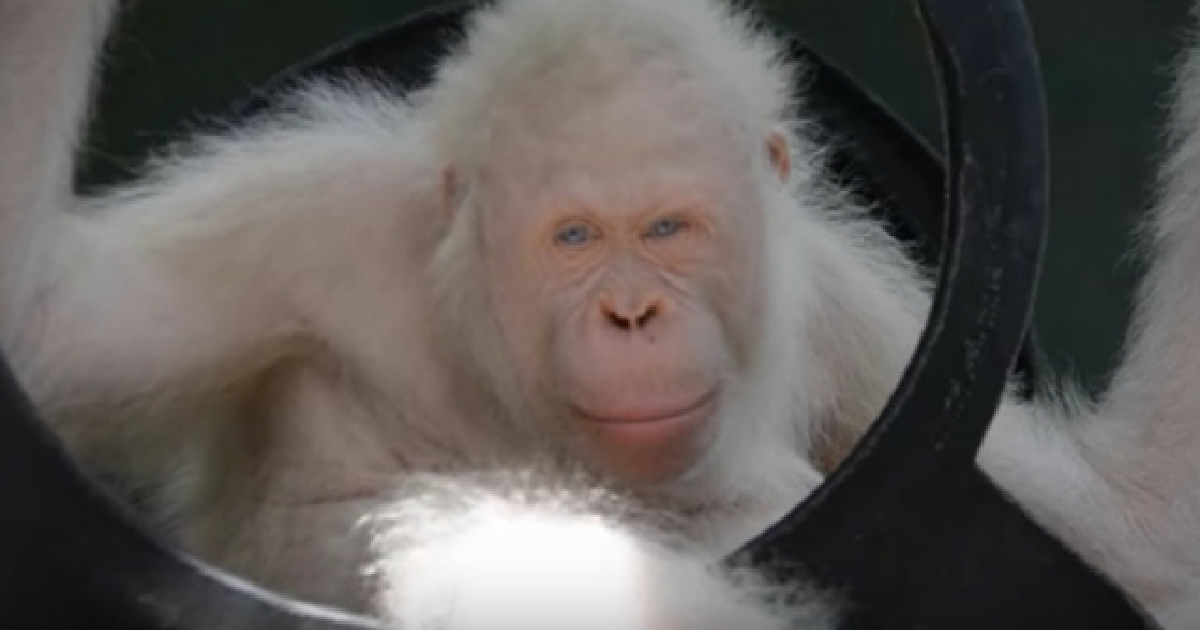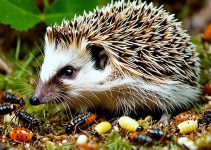As a dedicated rabbit owner, I always strive to provide my furry friend with a healthy and balanced diet. I’m sure many of you rabbit parents have wondered, “Can rabbits eat squash?” Well, the good news is that most types of squash sold for human consumption are safe for rabbits to eat.
When it comes to feeding our bunnies, it’s always important to offer them rabbit-safe foods. Vegetables play a crucial role in their nutrition, and squash can be a great addition to their diet. However, there are a few key things to keep in mind when introducing squash to your rabbit’s menu.
First and foremost, make sure to only feed your rabbit squash that you would eat yourself. Avoid giving them ornamental or wild squash, as these may contain toxins that can be harmful to their health. Stick to squash varieties that are safe for human consumption, such as butternut, acorn, spaghetti, and yellow or green squash.
While squash can be a tasty treat for your bunny, it should not make up a large portion of their diet. It’s important to offer them a varied selection of fresh hay and other vegetables to ensure they receive all the necessary nutrients. Remember, a balanced diet is key to keeping your rabbit healthy and happy.
Can Rabbits Eat Squash? Yes, they surely can.
- Most types of squash sold for human consumption are safe for rabbits to eat.
- Avoid giving rabbits ornamental or wild squash, as they may contain toxins.
- Squash can be a good supplement to a rabbit’s diet, but it should not be the only food they eat.
- Offer rabbits a varied diet that includes fresh hay and other vegetables.
- Introduce squash in small amounts and monitor your rabbit for any adverse reactions.
Types of Squash that Rabbits Can Eat
Rabbits can enjoy a diverse range of squash varieties as part of their diet. Some of the safe types of squash that rabbits can eat include butternut, acorn, spaghetti, and yellow or green squash. These vegetables are not only delicious but also provide valuable nutrition for your furry friend.
When selecting squash for your rabbit, it’s vital to choose types that are safe for human consumption. This ensures that the squash is free from harmful chemicals or toxins that could potentially harm your bunny.
Introducing squash varieties into your rabbit’s diet can add variety and flavor to their meals. However, it’s important to note that while squash is a great addition to a balanced rabbit diet, it should not be the only food they consume. Rabbits thrive on a diverse diet that includes an abundance of fresh hay, a selection of safe vegetables, and their specially formulated pellets.
Remember, safety is key when feeding squash to your rabbit. Avoid giving them any ornamental or wild squash, as these may contain substances that are harmful to rabbits. Stick to squash varieties that are commonly sold for human consumption to ensure that you’re providing a safe and nutritious treat for your bunny.
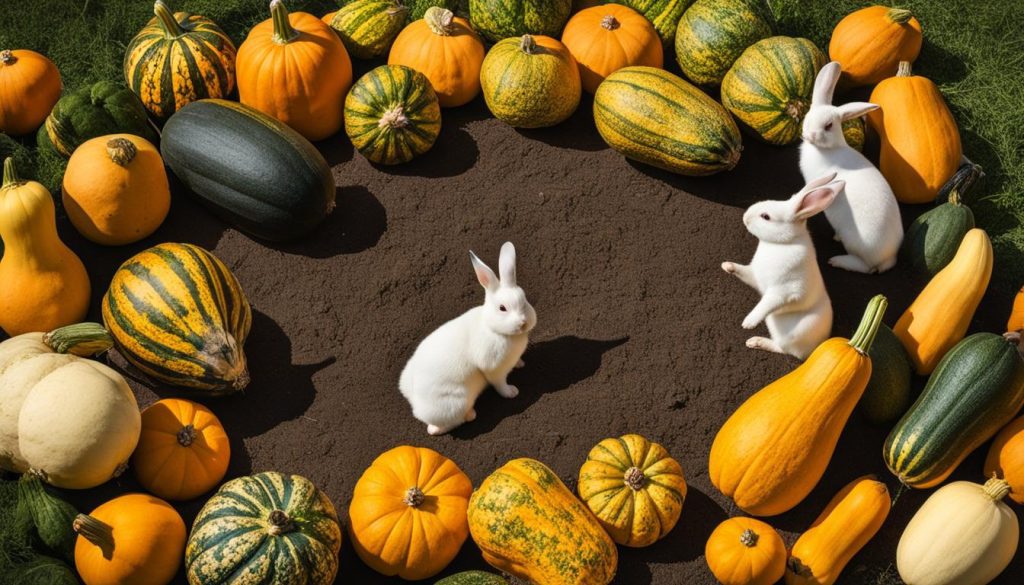
Do Rabbits Like Squash?
Rabbits’ preferences for squash can vary. While some rabbits may enjoy eating squash, others may prefer other vegetables. It can also depend on when the squash was introduced to the rabbit’s diet. Rabbits are more likely to enjoy something if they were introduced to it earlier in life. However, since squash is high in carbohydrates, it is best to offer it to rabbits as a treat, rather than as a main part of their diet. If your rabbit doesn’t like squash, it’s not a cause for concern.
When it comes to rabbits, their preferences for food can be as unique as their individual personalities. While some rabbits might savor the taste of squash, others might turn their noses up at it. Just like us humans, rabbits have their own preferences and taste preferences. While squash can be a healthy addition to a rabbit’s diet, it might not be their top choice.
There are several factors that can influence a rabbit’s preference for squash. One of the main factors is when the squash was first introduced into their diet. Rabbits are creatures of habit, and they tend to be more accepting of foods that they were introduced to at an early age. If you have a young rabbit, it might be easier to get them to eat squash compared to an older rabbit.
Another factor to consider is that rabbits have different taste preferences. Just like some humans don’t enjoy certain vegetables, rabbits might have their own preferences as well. While squash provides some nutritional benefits, it’s important to remember that it is high in carbohydrates. This means that it should be offered to rabbits as a treat, rather than as a main part of their diet. If your rabbit doesn’t like squash, there’s no need to worry. There are plenty of other vegetables that you can offer them to meet their dietary needs.
How to Feed Squash to Rabbits
When it comes to feeding squash to rabbits, it’s important to follow a few guidelines to ensure their health and well-being. Here are some important tips on how to do it:
1. Include both the flesh and the skin: When offering squash to your rabbits, you can serve it with both the flesh and the skin intact. There’s no need to peel the skin before giving it to them. This way, they can benefit from all the nutrients present in the squash.
2. Thoroughly wash the squash: Before feeding the squash to your rabbits, make sure to wash it thoroughly. This helps remove any pesticides or chemicals that may be present on the skin. By doing so, you’re ensuring that your rabbits are consuming safe and rabbit-friendly foods.
3. Offer the leaves and stems: While the flesh of the squash is the main part that rabbits eat, you can also provide them with the leaves and stems of the squash plant. Although these may not be their preferred food, they can still enjoy it as a part of their balanced diet.
4. Start with small amounts: When introducing squash to your rabbit’s diet, it’s best to start with small amounts. This allows their digestive system to adjust to the new food. Observe their reactions and monitor for any adverse effects. If your rabbit shows signs of digestive upset, reduce or eliminate squash from their diet.
5. Maintain a varied diet: While squash can be a nutritious addition to your rabbit’s diet, it should not be the sole focus. Offer a variety of vegetables, fresh hay, and pellets to ensure that your rabbit receives a balanced and complete nutritional profile. This helps promote optimal health and prevents any nutrient deficiencies.
Follow these feeding guidelines to ensure that your rabbits enjoy their squash in a safe and healthy manner. Remember to always observe your rabbit’s reactions and consult with a veterinarian if you have any concerns about their diet or health.
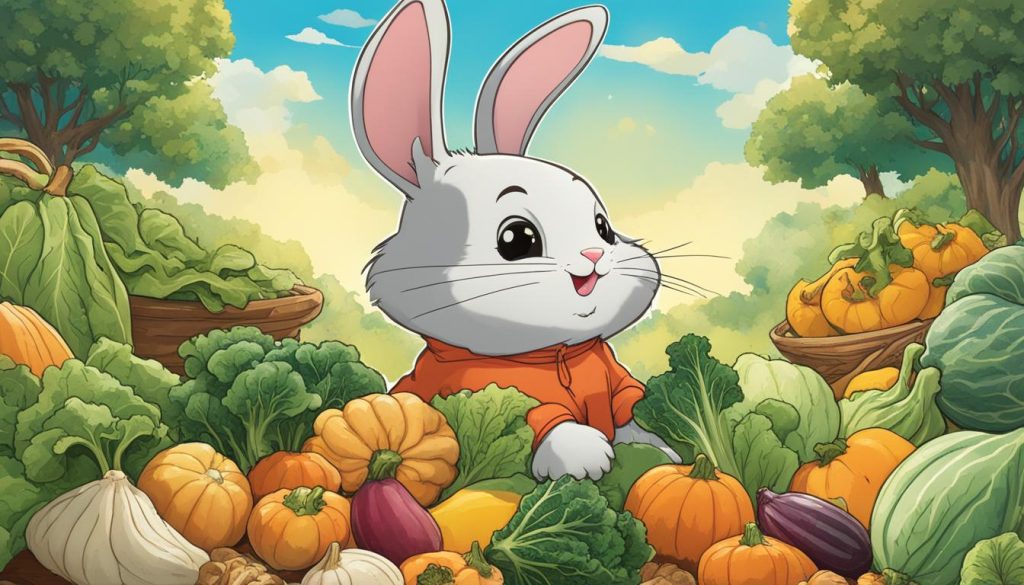
Conclusion
Rabbits can safely eat various types of squash that are sold for human consumption. Squash, such as butternut, acorn, spaghetti, and yellow or green squash, can be a part of a balanced diet for rabbits. However, it’s important to avoid giving them ornamental or wild squash, as these may contain toxins that could harm your furry friend.
To ensure the safety of your rabbit’s diet, always wash the squash thoroughly before feeding it to them. This will help remove any pesticides or chemicals that may be present on the skin. Additionally, it’s essential to provide a variety of vegetables, along with fresh hay and pellets, to ensure your rabbit receives all the necessary nutrients for optimal health.
While squash can be a healthy addition to a rabbit’s diet, it should not be the only food they eat. As with any new food, introduce squash gradually and monitor your rabbit’s reactions. If you have any concerns or questions, it’s always best to consult with a veterinarian who can provide expert guidance on your rabbit’s specific dietary needs.
Remember, your rabbit’s well-being is a priority, and offering them a balanced and varied diet that includes rabbit-safe foods, such as squash, will help keep them happy and healthy.
FAQ
Can rabbits eat squash?
Yes, rabbits can eat most types of squash that are safe for human consumption. However, it’s important to avoid giving them ornamental or wild squash and stick to squash sold for human consumption.
What types of squash can rabbits eat?
Rabbits can eat various types of squash, including butternut, acorn, spaghetti, and yellow or green squash. As long as the squash is safe for human consumption, it is generally safe for rabbits.
Do rabbits like squash?
Rabbits’ preferences for squash can vary. While some rabbits may enjoy eating squash, others may prefer other vegetables. It can also depend on when the squash was introduced to the rabbit’s diet.
How should I feed squash to my rabbit?
When feeding squash to rabbits, include both the flesh and the skin. There is no need to peel the skin before offering it to your rabbit. Thoroughly wash the squash to remove any pesticides or chemicals. Also, introduce squash in small amounts and offer a varied diet that includes hay, vegetables, and pellets.
Can squash be the only food in a rabbit’s diet?
No, squash should not make up a large portion of a rabbit’s diet. It is best to offer squash as a treat and provide a balanced diet that includes hay, vegetables, and pellets.


